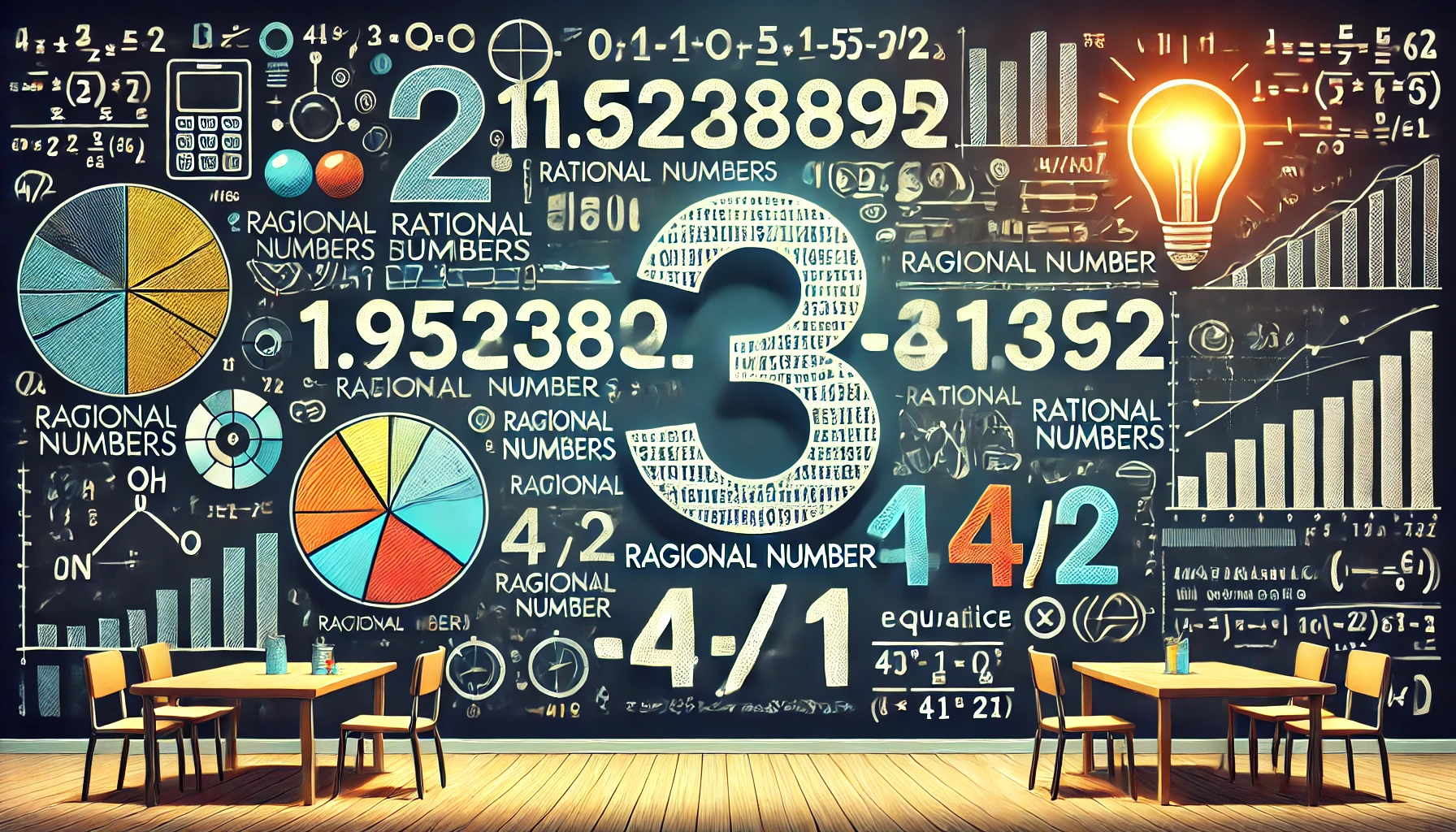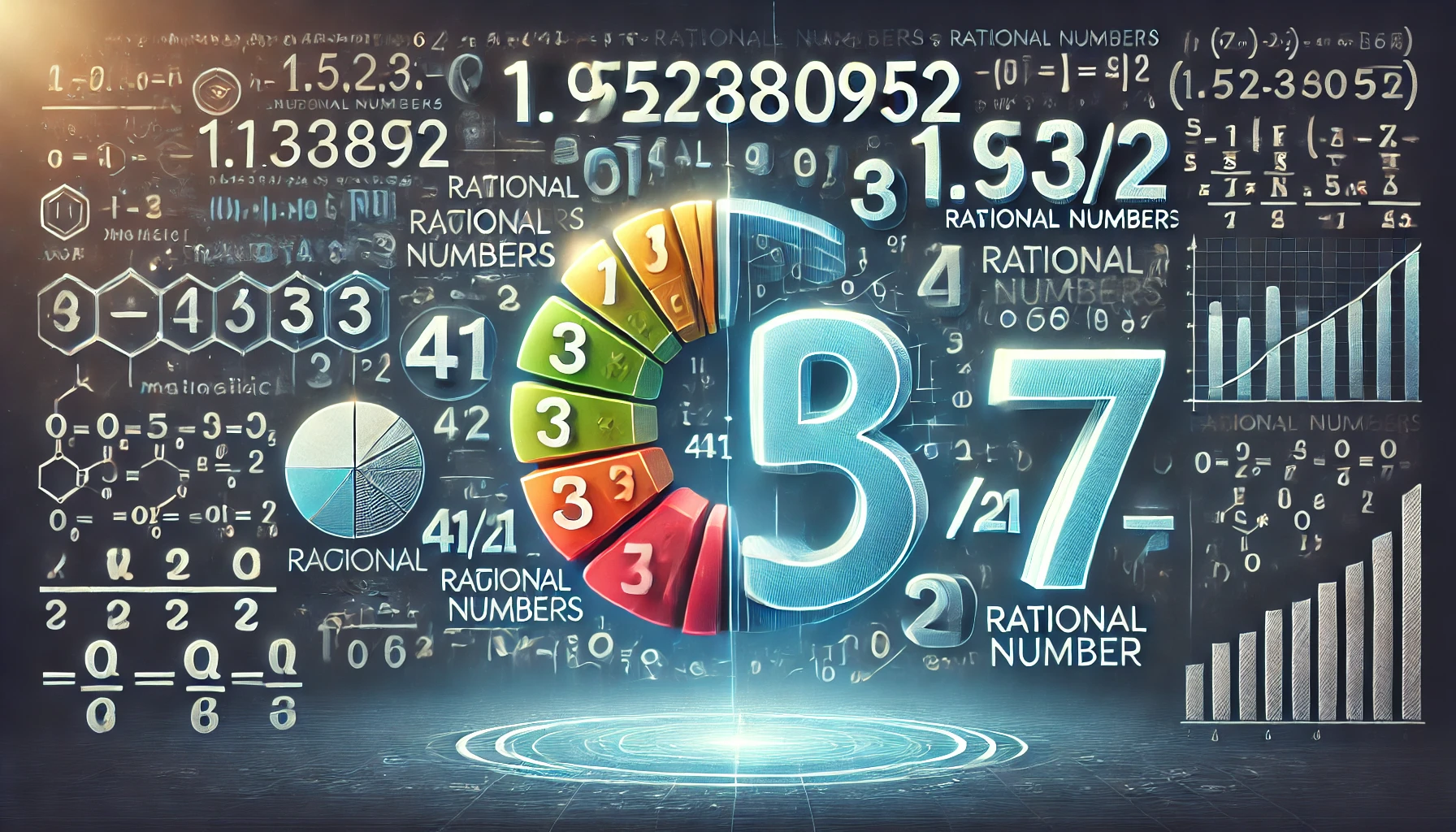Understanding the nature of numbers is an essential aspect of mathematics, especially when analyzing whether a given number is rational or irrational. Numbers like 1.952380952 often intrigue learners and mathematicians due to their non-standard appearance. Let’s dive into this query: Is 1.952380952 a Irrational Number Yes or No? This article explores every facet of the topic, ensuring clarity for beginners and advanced learners alike.
What Are Rational and Irrational Numbers?
To determine if 1.952380952 is irrational, understanding the definitions of rational and irrational numbers is crucial:
- Rational Numbers: These are numbers that can be expressed as the quotient or fraction of two integers, where the denominator is not zero. Examples include 1/2, 4, and 0.25.
- Irrational Numbers: Numbers that cannot be expressed as a fraction of two integers fall into this category. They are non-repeating, non-terminating decimals like π (pi) and √2.
Examining 1.952380952 as a Decimal
The number 1.952380952 appears to be a non-terminating decimal. At first glance, this characteristic might suggest it is irrational. However, a deeper investigation is needed to classify it correctly. Let us break it down further.
Does 1.952380952 Have a Repeating Pattern?
One defining property of rational numbers is that their decimal representation either terminates or shows a repeating pattern. By examining 1.952380952, we notice the decimal 952380 repeats. This repeating pattern is the first clue that the number might be rational.
Expressing 1.952380952 as a Fraction
To confirm its rationality, we attempt to represent 1.952380952 as a fraction.
Steps to Convert:
- Let x=1.952380952x = 1.952380952.
- Multiply both sides by 10610^6, the length of the repeating pattern, to shift the decimal point:
106x=1952380.95238095210^6x = 1952380.952380952. - Subtract the original equation x=1.952380952x = 1.952380952:
106x−x=1952380.952380952−1.95238095210^6x – x = 1952380.952380952 – 1.952380952.
999999x=1952380999999x = 1952380. - Solve for xx:
x=1952380999999x = \frac{1952380}{999999}.
Thus, 1.952380952 is a rational number since it can be expressed as the fraction 1952380999999\frac{1952380}{999999}.
Why Is 1.952380952 Not Irrational?
A number is irrational if it cannot be expressed as a fraction. Since we successfully expressed 1.952380952 as 1952380999999\frac{1952380}{999999}, it does not meet the criteria for irrationality. Additionally, the repeating decimal pattern supports its rationality.
Visualizing Rational and Irrational Numbers
To better understand why 1.952380952 is rational, compare it with the following:
- Rational Example: 0.333… (repeating) = 1/3
- Irrational Example: 0.101001000… (no pattern)
The clear, repeating sequence in 1.952380952 aligns it with the rational category.
Importance of Identifying Rational Numbers
Understanding whether a number is rational or irrational helps in fields like algebra, calculus, and real-world problem-solving. Rational numbers, including 1.952380952, are often easier to work with because they can be expressed precisely as fractions or ratios.

Real-World Applications of Rational Numbers
Rational numbers like 1.952380952 appear in various scenarios:
- Engineering: For precise measurements and calculations.
- Economics: Representing exact values in financial models.
- Computer Science: Coding algorithms often require rational approximations for real-world data.
Misconceptions About Irrational Numbers
People often confuse non-terminating decimals with irrationality. However, repeating decimals (like 1.952380952) are rational because they can be expressed as fractions.
How to Identify an Irrational Number
To verify if a number is irrational:
- Check if it has a repeating or terminating decimal form.
- Attempt to represent it as a fraction.
- Use approximation or proof techniques like prime factorization or irrationality theorems.
Why the Question Matters: Is 1.952380952 Irrational?
Such questions test your understanding of mathematical principles and hone your problem-solving skills. They also reinforce the differences between fundamental concepts like rationality and irrationality.
Key Properties of Rational Numbers
- Represented as fractions.
- Decimal representation terminates or repeats.
- Used in everyday mathematics and sciences.
Applications in Advanced Mathematics
Rational numbers, including repeating decimals like 1.952380952, play a role in:
- Linear algebra for solving systems of equations.
- Number theory to study prime factors.
- Trigonometry for precise angle measurements.
Fun Fact About Repeating Decimals
Did you know? Every repeating decimal can be converted into a fraction, and the length of the repeating sequence often provides clues to its denominator!
FAQs
What is a rational number?
A rational number is any number that can be expressed as the quotient of two integers, with a non-zero denominator.
Is 1.952380952 a repeating decimal?
Yes, the decimal 1.952380952 repeats with the sequence “952380.”
Can 1.952380952 be represented as a fraction?
Yes, it can be expressed as 1952380999999\frac{1952380}{999999}, proving it is rational.
What makes a number irrational?
Irrational numbers have non-terminating, non-repeating decimals and cannot be expressed as fractions.
Why is 1.952380952 not irrational?
It repeats and can be converted into a fraction, satisfying the criteria of a rational number.
How are rational numbers used in real life?
They appear in engineering, economics, and other fields requiring precise measurements or representations.
Conclusion
So, Is 1.952380952 a Irrational Number Yes or No. Through mathematical reasoning, we’ve established that 1.952380952 is a rational number, as it possesses a repeating decimal pattern and can be expressed as a fraction. Recognizing the properties of such numbers enhances both mathematical literacy and real-world problem-solving skills.

Leave a Reply